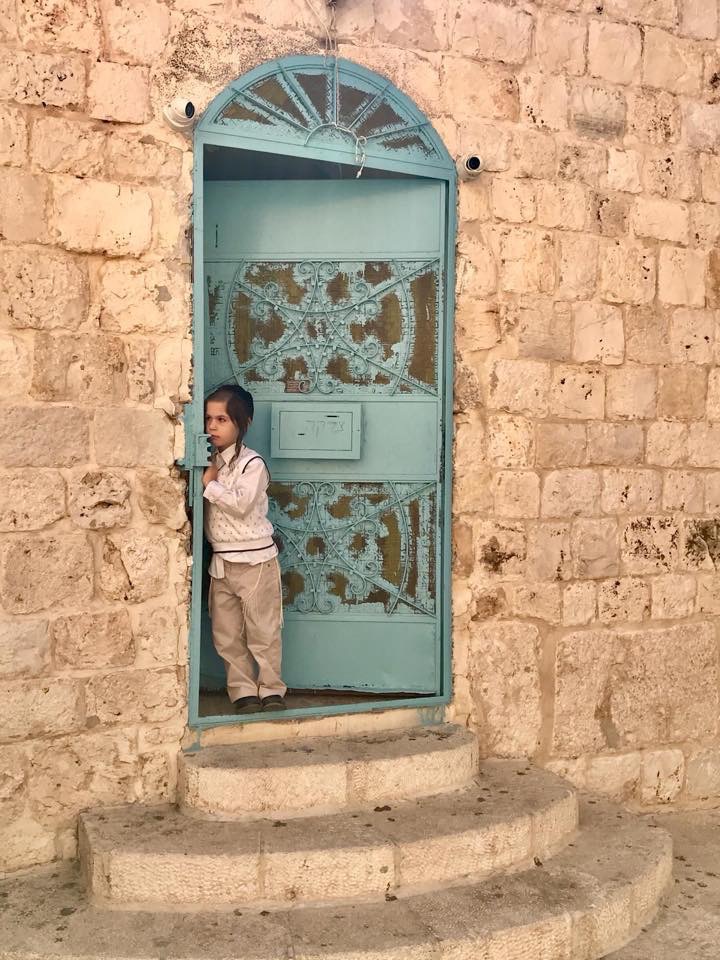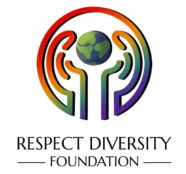 Our birth is but a sleep and a forgetting:
Our birth is but a sleep and a forgetting:
The Soul that rises with us, our life’s Star,
Hath had elsewhere its setting,
And cometh from afar:
Not in entire forgetfulness,
And not in utter nakedness,
But trailing clouds of glory do we come
From God, who is our home:
Heaven lies about us in our infancy!
From Ode on Intimations of Immortality From Recollections of Early Childhood – by William Wordsworth
In the mid-morning air, dappled with harsh sun and breezy shade offered by the trees in the ancient courtyard, my travel group caught glimpses of beautiful young children – curious, shy, expectant, quietly giggling – popping in and out of doors, waiting to leave their houses for a Rosh Hashanah (New Year’s) service in the same building that houses King David’s tomb. They knew not who any of us were – as we ambled through their buildings, snapped photos, commented, laughed, whispered questions – except that we always come, and they are used to this. Their daily life is not seen by us, except in the moments they cross the courtyard, perhaps. They must live with us constantly walking through, looking sideways at them so as not to be so obvious, but obvious still. They did not choose our coming, but they are used to it.
In truth, these children, Israeli and Palestinian alike, are used to many things they did not choose. They, without choosing to do so, woke up one morning to the world in this place and time and family around them. Young, vulnerable, incapable of much on their own, what do they truly need? Food, shelter, warmth and affection, connection to their human sources of all these. They need security, a surety that they are safe, and have enough, and are good. They will begin to want meaning, and purpose, and deeper connections. They will at some point, perhaps already, begin asking questions of “the others.” ‘Who are the people in our courtyard? Why are they always walking through? Why are their security guards around my city? Who built that giant wall?’ Like the questions this little boy might ask, other children in other cities might ask, ‘Why does my father have to answer so many questions just to go to work? Why am I not allowed to walk down the street I live on?’
Children understand neither hatred nor fear, at first. They know insecurity when they worry about their next meal, or wonder when they will be held again by a loving hand, but fear of the other is taught, learned. There is a time early in life for most of us in the US – not all, but most – where basic needs are met and fear is not first-nature, where hatred of the other is not yet normal, or comfortable. But this is a country where fear has sadly been trained into many, and innocent childhood is far too short for most. This is a country both young and ancient, where neighbors each have old, old stories that do not match. Fear and hatred may be sown into children’s hearts through the stories of their land, and from those seeds will reap a harvest of sorrow. But there are other stories and other storytellers. There are newly grieving parents already working through the grief of losing a son or daughter, and spreading new ideas of hope. There are teachers making space for Israeli and Palestinian children to grow up together, in trust and friendship. There are peacemakers willing to work every day to see a glimmer of change. And, in spite of every trauma, every sorrow, we also saw children laughing, curious, open. This land has new stories if we are willing to look and listen.
